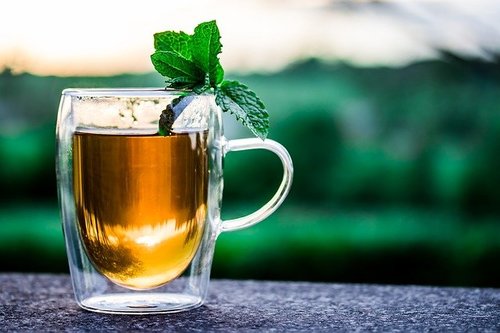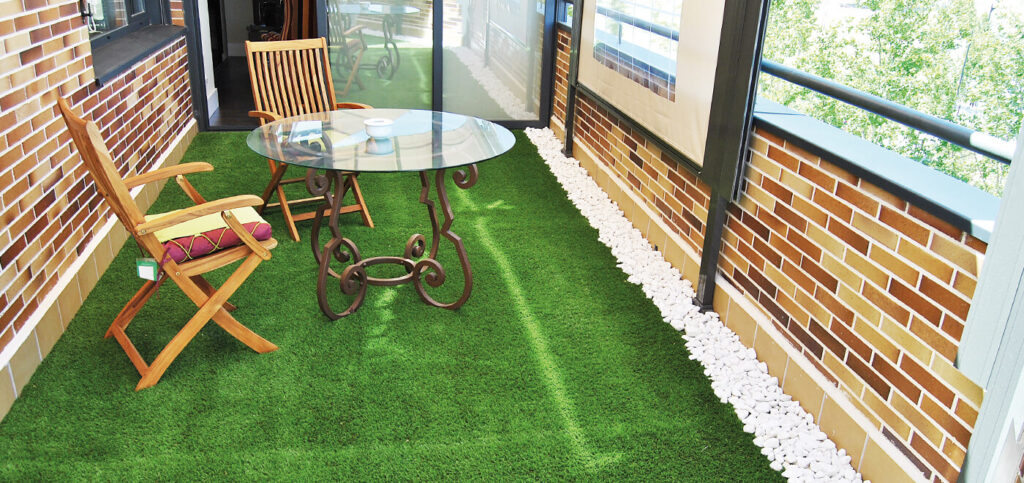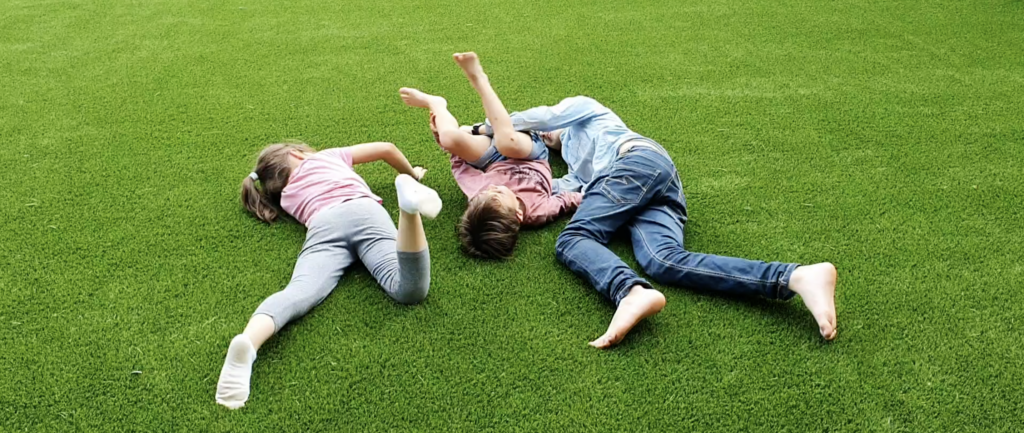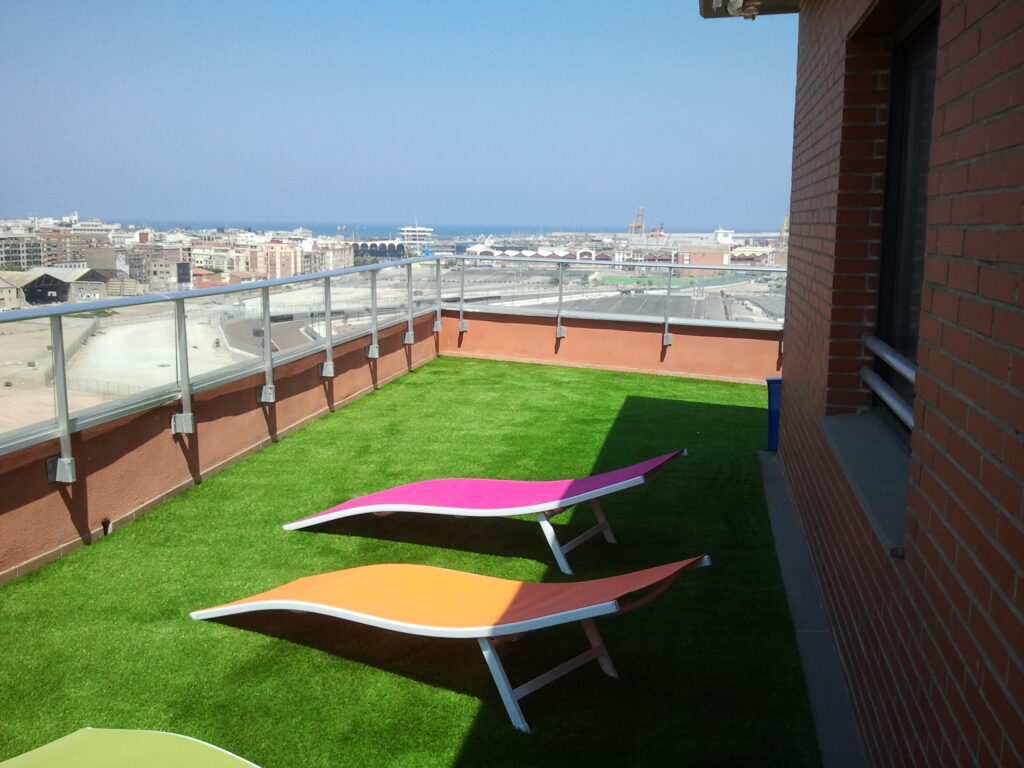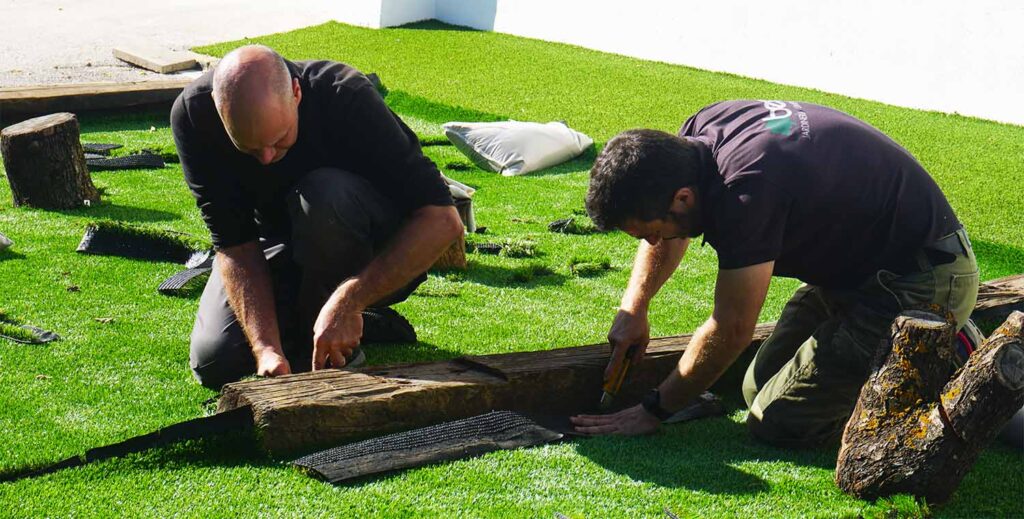In today’s post we are going to talk about medicinal plants that you can plant in your artificial turf garden. We tell you about their benefits and properties and explain how and where to plant them.
Medicinal plants for your artificial turf garden
In previous articles of this blog we have already talked about crops that you can plant in your artificial turf garden. We have recommended fruit trees, we have told you how to have a vegetable garden at home or which trees you should not plant. Today we want to continue helping you to get the most out of your artificial turf garden. And at the same time, take care of your health.
There are many medicinal plants that you can plant in your artificial turf garden. Today we have chosen 5 that are well known and have great properties.
These five medicinal plants can be planted in pots, with the advantage of being able to move them easily, according to the needs of sun or watering. With this system, water drainage is easier, as it can be done by simply placing a plate under the pot. In addition, choosing colored pots, painted, with ornaments… your artificial grass garden will be more beautiful, decorated and cheerful.
Lavender, relaxing and digestive
We start with lavender, a medicinal plant that not only takes care of your health, it will also give a pleasant aroma to your garden and a nice stamp, because of the beauty of this plant. This plant is used in aromatherapy and decoration. Its pleasant aroma keeps your garden smelling fresh.
Lavender has many properties: relaxing, digestive, cosmetic, antiseptic, antibacterial, healing, soothes headache, lumbago, arthritis, mosquito repellent.
When planting lavender we must take into account that it is a medicinal plant that needs a lot of sunlight. It is very resistant and can be grown in various soils (stony, dry, clayey), as well as in pots.
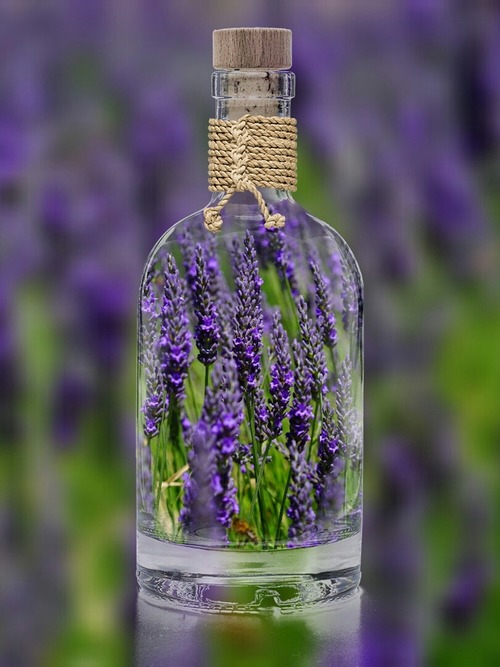
Aloe Vera, cosmetics
Aloe vera shares with lavender its cosmetic and healing properties. In addition, its digestive benefits stand out. It is beneficial to treat colitis, lack of appetite, constipation.
However, aloe vera is not as resistant to cold climates as lavender. It does need plenty of light and watering once every seven days. Water drainage is very important.

Melissa, for insomnia
If we have trouble falling asleep, an infusion of lemon balm will help us fight insomnia. It relaxes us and is a natural remedy to treat depression. It is also digestive and anti-congestive. It is also recommended to soothe the itching of insect bites.
In this case, the lemon balm should be planted in semi-shaded areas, the sun in hot weather does not benefit it. It is resistant to lack of watering.
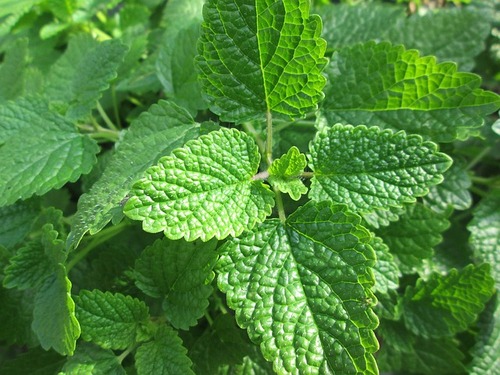
Thyme, decongestion
Thyme has properties that benefit the respiratory system, helping to clear the airways when we are cold or congested. It helps us with heavy digestions and to put an end to bad breath. It is also useful for spicing foods.
This medicinal plant also requires sunlight. It is not very resistant to cold climates and in very hot months it should be watered more assiduously, ensuring proper water drainage.
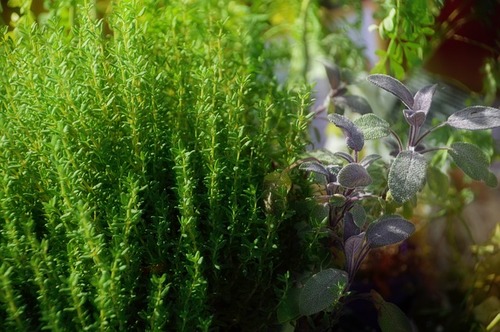
Mint, many utilities
Mint, like thyme, also has culinary uses. If we focus on its health benefits, we highlight its great benefits for the digestive system. It helps us to avoid vomiting, to reduce the pain caused by colic. It is also a natural flavoring agent due to its strong aroma.
Of all the medicinal plants that we have explained, mint is the one that requires more watering and a more nutritious substrate. It needs sunlight, but should be planted in semi-shade. It resists well to temperatures below zero.
